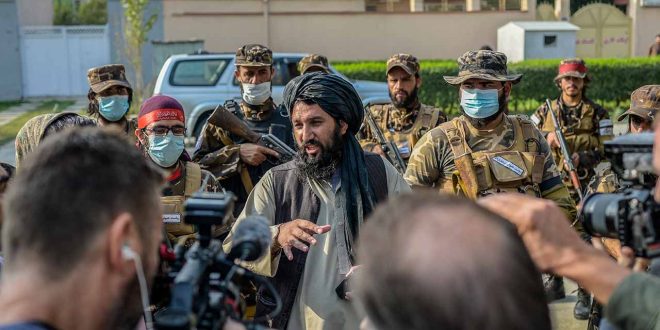KABUL – Journalists in Afghanistan are raising alarms over deteriorating working conditions as Neda Mohammad Nadim, the Taliban’s minister of higher education, prohibited filming at an event in Khost Province. The ban, imposed during a visit to Sheikh Zayed University, has intensified concerns about press freedom under Taliban rule. Nadim, a close associate of the group’s supreme leader, called filming living beings a sin and ordered journalists to stop all visual documentation, claiming it violates Sharia law.
This restriction is part of a wider crackdown on media outlets, with most television stations in Khost and other provinces being shut down. Of the 10 stations in Khost before the Taliban’s return, only three remain operational. Similar bans have already led to closures in Takhar and Kandahar, with the Ministry for the Propagation of Virtue confirming that the ban will expand nationwide.
The suppression of visual media is codified in Taliban law, and authorities have even launched campaigns against photography and videography of animals. Journalists fear that without the ability to document events visually, accurate reporting will become nearly impossible. Rights groups report that Afghanistan’s media landscape has been devastated, with over 80 TV stations, 137 radio stations, and 13 news agencies forced to shut down since the Taliban regained power.
This development underscores the rapid decline of press freedom in Afghanistan, as journalists struggle to operate under an increasingly oppressive regime.
 Afghanistan Times
Afghanistan Times




